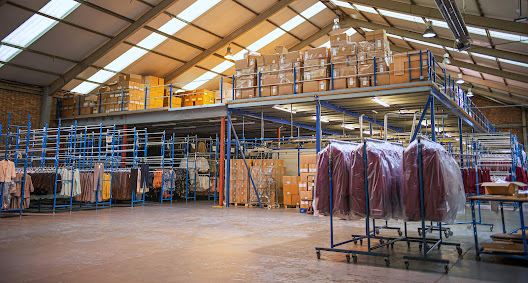Eco-Friendly Innovations: Sustainable Garment Processing Solutions in the UK
The fashion industry stands at a critical juncture where sustainability is no longer an option but a necessity. With increasing consumer awareness and environmental concerns, the garment processing sector is undergoing a transformation towards more eco-friendly practises. In the United Kingdom, innovative solutions are emerging to address the environmental footprint of textile manufacturing and garment processing. From reducing water usage to implementing renewable energy sources, the UK is leading the way in adopting sustainable practises across the fashion supply chain.
Embracing Sustainable Technologies:
In recent years, UK garment processors have been actively investing in sustainable technologies to minimise their environmental impact. Advanced water recycling systems are being deployed to drastically reduce water consumption during processes like dyeing and finishing. Additionally, the adoption of energy-efficient machinery and renewable energy sources such as solar and wind power is becoming increasingly prevalent. These initiatives not only lower carbon emissions but also contribute to significant cost savings for businesses in the long run.
Innovative Materials and Processes:
The development of eco-friendly materials and processes is another key aspect of sustainable garment processing in the UK. From organic cotton to recycled polyester, manufacturers are exploring alternative materials that have a lower environmental footprint. Furthermore, advancements in dyeing techniques such as digital printing and natural dyes are being embraced to minimise water usage and hazardous chemical discharge. By prioritising the use of non-toxic and biodegradable substances, garment processors are striving to create clothing that is not only fashionable but also environmentally responsible.
Circular Economy Initiatives:
The concept of a circular economy, where resources are reused and recycled rather than disposed of after a single use, is gaining traction in the UK fashion industry. Garment processors are increasingly adopting practises such as textile recycling and upcycling to extend the lifespan of clothing and reduce waste. Collaborations between brands, manufacturers, and recycling facilities are facilitating the collection and repurposing of old garments into new products, thus closing the loop on the fashion supply chain.
Transparency and Traceability:
Consumers are becoming more conscious about the origins of their clothing and the environmental impact associated with its production. In response, garment processors in the UK are prioritising transparency and traceability throughout the supply chain. Technologies like blockchain are being utilised to provide consumers with real-time information about the sourcing, manufacturing, and transportation of garments. By fostering greater transparency, brands can build trust with consumers and empower them to make more informed purchasing decisions.
Challenges and Opportunities:
Despite significant progress, the journey towards sustainable garment processing in the UK is not without its challenges. High initial costs, technological limitations, and resistance to change from traditional practises are some of the barriers that companies may encounter. However, these challenges also present opportunities for innovation and collaboration within the industry. Government incentives, consumer demand for sustainable products, and growing awareness of environmental issues are driving forces that can propel the adoption of eco-friendly solutions in garment processing.
Conclusion:
In conclusion, sustainable garment processing solutions are emerging as a key driver of change within the UK fashion industry. From embracing innovative technologies to promoting circular economy initiatives, manufacturers are actively seeking ways to reduce their environmental footprint while meeting the growing demand for sustainable fashion. By prioritising transparency, collaboration, and innovation, the UK is paving the way towards a more eco-friendly and socially responsible garment processing sector. As consumer awareness continues to grow, the adoption of sustainable practises is not only a business imperative but also a moral obligation for the future of fashion.



Comments
Post a Comment